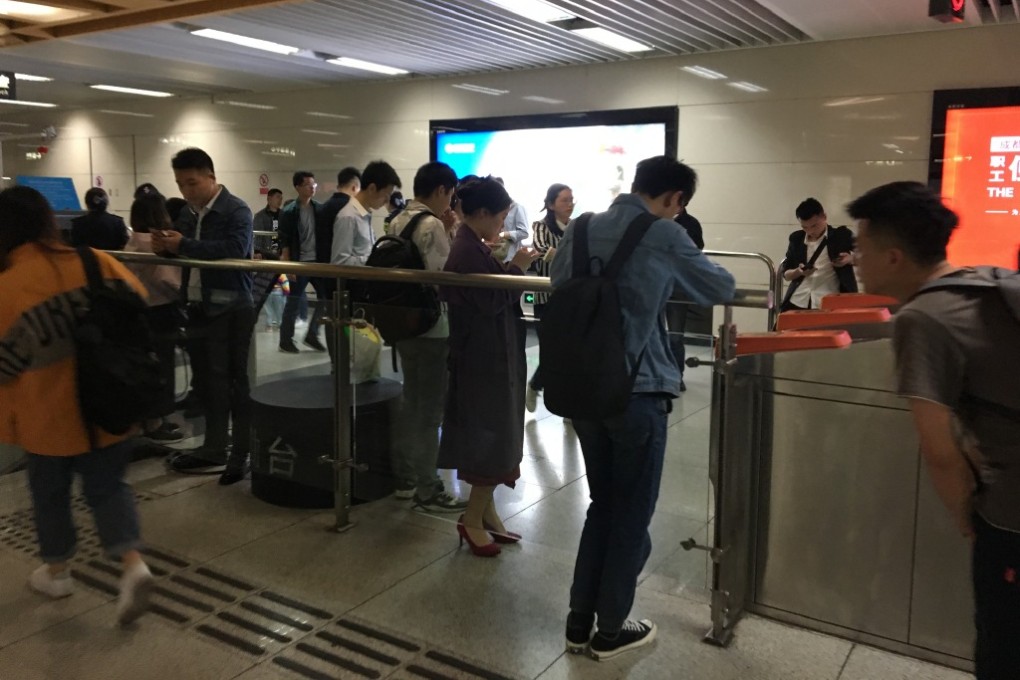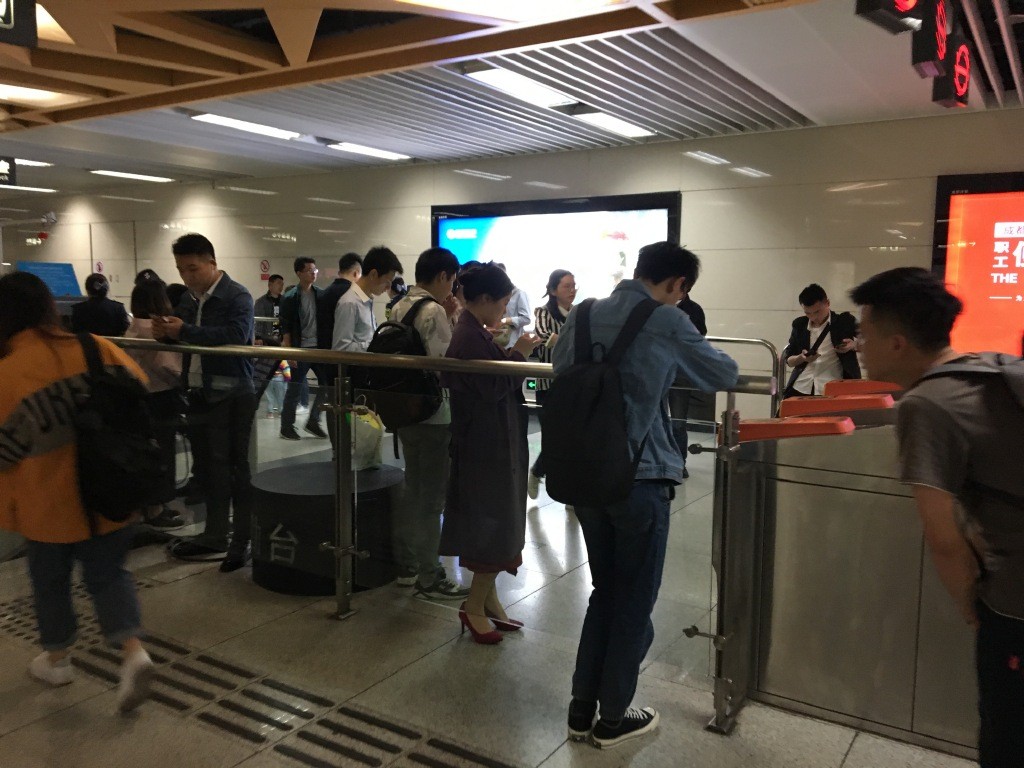Advertisement
Crashed app causes chaos during rush hour commute in one of China’s largest cities
A malfunctioning payment app led to long lines and late workers in Chengdu
Reading Time:2 minutes
Why you can trust SCMP

This article originally appeared on ABACUS
It’s annoying when any app crashes on your phone, but most of the time it’s just a minor inconvenience. What happens when the app is an integral part of your life, though? Some Chinese commuters learned the hard way Monday morning.
Advertisement
In the southwestern metropolis of Chengdu, frustrated subway riders took to Weibo to complain that a transport payment app called Tianfu Tong wasn’t working. Given the size of the city and the popularity of mobile payments in China, a disruption such as this can lead to large-scale delays. Chengdu is a massive city with 16 million people, about four times the population of Los Angeles.
Like many mobile payment services in China, Tianfu Tong normally generates a unique QR code for each transaction. Train passengers, for example, can use it to scan in and out of the station.
How the QR code conquered China
The problem this time was that the app failed to load a QR code. Unable to pay digitally, commuters were forced to resort to using an old-fashioned, physical fare card. Lines formed in front of ticket machines and counters as cards were being refilled and new tickets purchased. Some commuters didn’t even have that option. Some Weibo users said they were stuck without cash -- an understandable predicament in a country where nearly 70% of internet users use mobile payments.

The unexpected delay meant some passengers showed up late to work. In an official apology posted on its Weibo account, Tianfu Tong pledged to publish a letter that affected riders can download and present to their employers as proof.
Advertisement
That didn’t seem to be enough to pacify angry riders, who pointed out that the Chengdu subway doesn’t accept Apple Pay and several other payment apps that use NFC -- a more secure alternative to the QR code. Even though Apple Pay has struggled to catch on in most of China, it’s available to commuters in Beijing and Shanghai. Major Chinese phone makers like Xiaomi also support NFC payments for public transport.

Advertisement